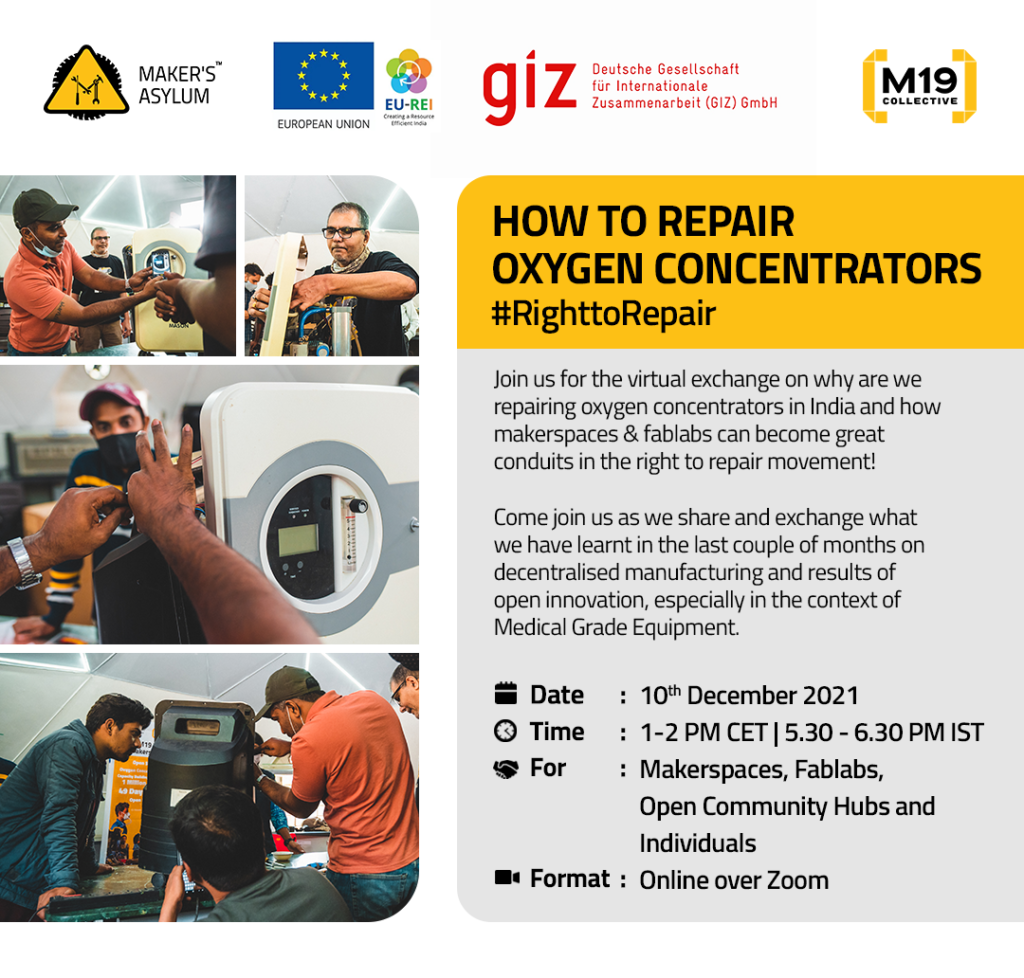#Repair – once an integral part of the Indian culture is now becoming a dying tradition. When something doesn’t work, we tend to replace it with a new one, most times! However, the good part about fixing something is you cannot break something that is already “broke”. And fixing it, can teach you a thing or two and also potentially save something from going into the landfills.
And this “throwing away” mindset also prevails when it comes to medical grade equipment, especially the ones getting imported into the country. #Flashback to second wave in India, thousand’s of oxygen concentrators made their way in from China and various parts of the world. Did we even check on if all of them are working or not anymore? May be not. According to reports, India is among the top 5 electronic e-waste contributors globally, out of which Medical equipment contributes to about 8% of the annual e-waste production and is growing. When we also reached out to hospitals and clinics in the country we have found a few hundred oxygen concentrators that had stopped working due to various reasons.
The M19 Initiative has been evolving in its journey and in this next phase we have been working on skilling local communities to repair oxygen concentrators. We gathered some knowledge while making our own a couple of months back we also think that #makerspaces, #fablabs can become great conduits in the right to repair movement across the world as fixing has also been very integral to the #makerculture.
Join us for our #virtualrepaircafe on the 10th of December. We decided to share our insights and open the discussion on integrating #circulareconomy and #repairandreuse while we make, break and repair more things



